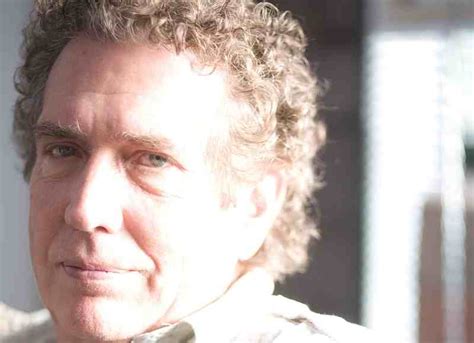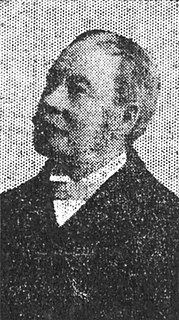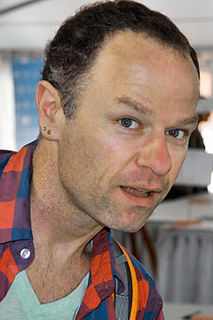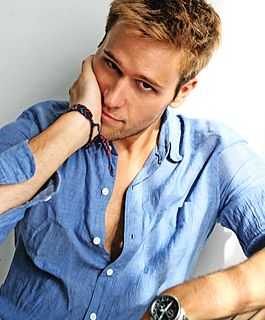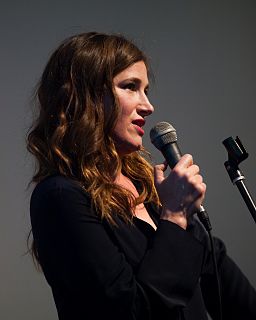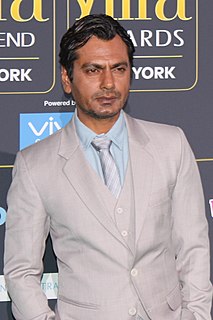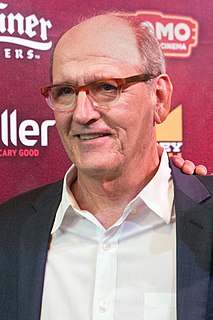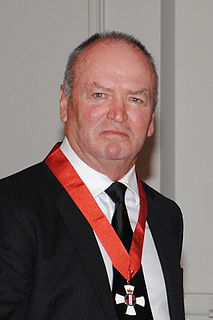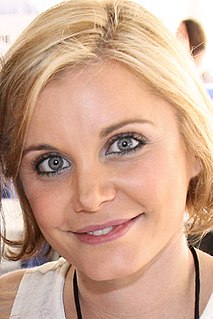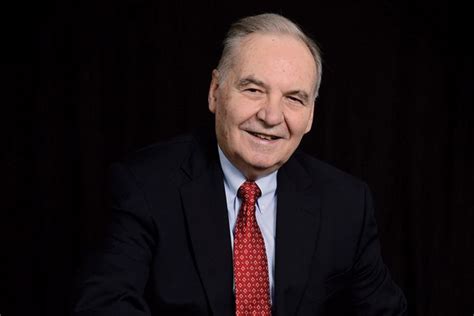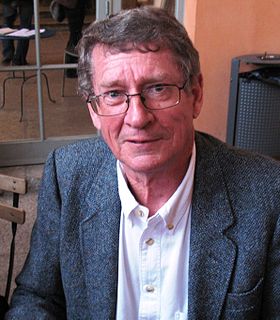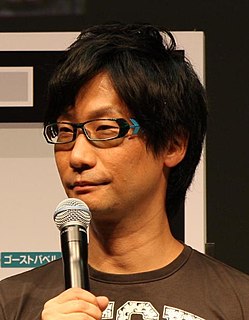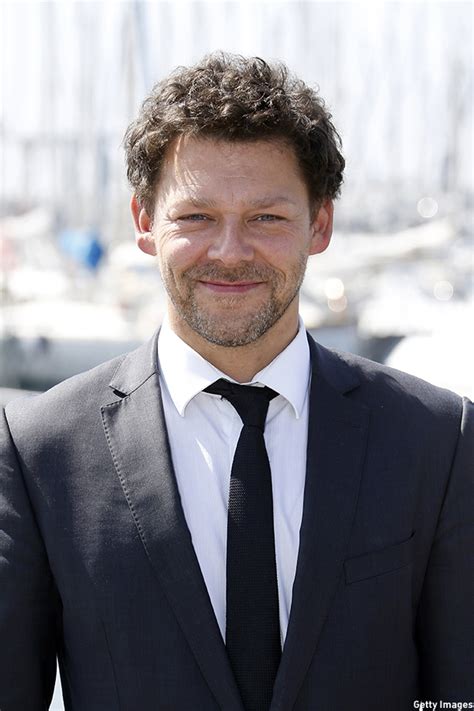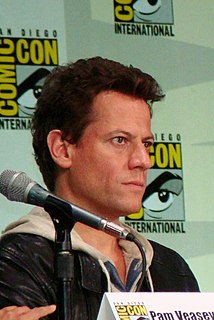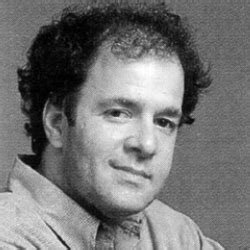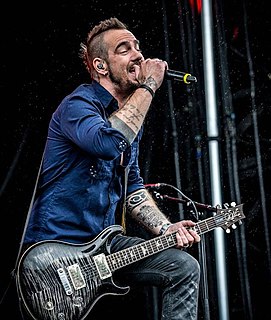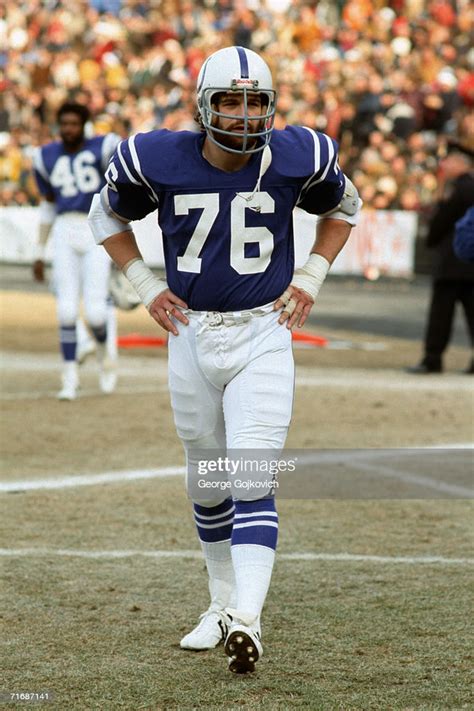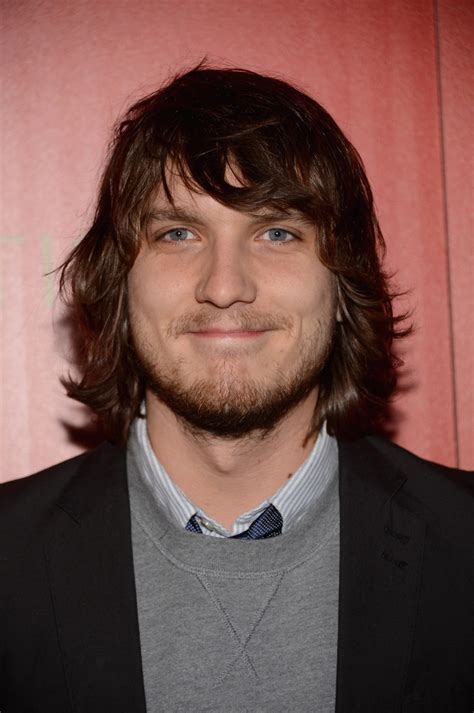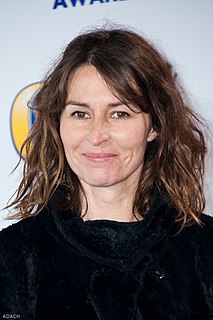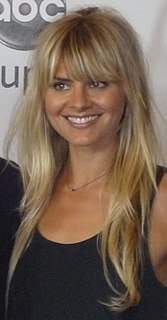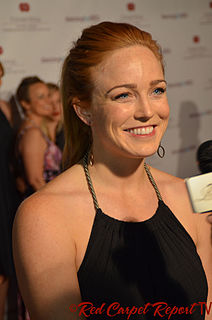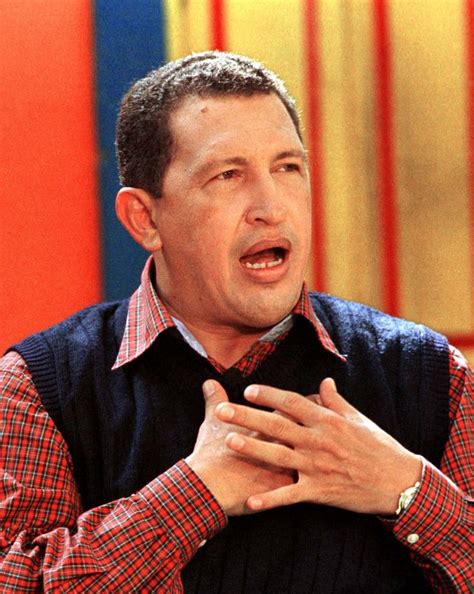Top 1200 Character Flaws Quotes & Sayings - Page 2
Explore popular Character Flaws quotes.
Last updated on April 16, 2025.
The first thing that happens is the cleansing of the former character. I don't think a lot of actors talk about it, but there is usually a process where you essentially purge yourself of the character played prior to the movie. Then you want to think about what the character represents, and you write down all of the elements about this character and then take the time to find some synchronicity and start breathing the character.
When reputable scientists correct flaws in an experiment that produced fantastic results, then fail to get those results when they repeat the test with flaws corrected, they withdraw their original claims. They do not defend them by arguing irrelevantly that the failed replication was successful in some other way, or by making intemperate attacks on whomever dares to criticize their competence.
From the beginning it was drilled into me that a golf course was a place where character fully reveals itself -- both its strengths and its flaws. As a result, I learned early not only to fix my ball marks but also to congratulate an opponent on a good shot, avoid walking ahead of a player preparing to shoot, remain perfectly still when someone else was playing, and a score of other small courtesies that revealed, in my father's mind, one's abiding respect for the game.
Reputation is seeming; character is being. Reputation is manufactured; character is grown. Reputation is your photograph; There is a vast difference between character and reputation. Reputation is what men think we are; character is what God knows us to be. Reputation is seeming; character is being. Reputation is the breath of men; character is the inbreathing of the eternal God. One may for a time have a good reputation and a bad character, or the reverse ; but not for long.
A stranger can see in an instant something in you that you might spend years learning about yourself. How awful we all are when we look at ourselves under a light, finally seeing our reflections. How little we know about ourselves. How much forgiveness it must take to love a person, to choose not to see their flaws, or to see those flaws and love the person anyway. If you never forgive you’ll always be alone.
I can get my head turned by a good-looking guy as much as the next girl. But sexy doesn't impress me. Smart impresses me, strength of character impresses me. But most of all, I am impressed by kindness. Kindness, I think, comes from learning hard lessons well, from falling and picking yourself up. It comes from surviving failure and loss. It implies an understanding of the human condition, forgives its many flaws and quirks. When I see that in someone, it fills me with admiration.
There is a string that connects us that is not visible to the eye. Maybe every person has more than one soul they are connected to, and all over the world there are those invisible strings... Maybe the chances that you'll find each and every one of your soul mates is slim. But sometimes you're lucky enough to stumble across one. And you feel a tug. And it's not so much a choice to love them though their flaws and through your differences, but rather you love them without even trying. You love their flaws.
When you are writing, you have to love all your characters. If you're writing something from a minor character's point of view, you really need to stop and say the purpose of this character isn't to be somebody's sidekick or to come in and put the horse in the stable. The purpose of this character is you're getting a little window into that character's life and that character's day. You have to write them as if they're not a minor character, because they do have their own things going on.
A woman can be demure, lady-like and the most prim and proper character, and still have a toughness and resiliency as apparent as a superhero-type female character or a warrior or soldier type. It's all about the story, the character, and the course of events in that piece of work and how that character is presented.
When I'm writing, I try to have the mask of my character on as I'm walking through the world. When I'm not at my desk, the rest of the time, I try to stay in that character and see the world the way that character would It's almost like method acting in a way — keeping the character close the way the actor keeps a script close and always tries to be in character.
So yes. It had flaws, but what does that matter when it comes to matters of the heart? We love what we love. Reason does not enter into it. In many ways, unwise love is the truest love. Anyone can love a thing because. That's as easy as putting a penny in your pocket. But to love something despite. To know the flaws and love them too. That is rare and pure and perfect.
Every time I make a new game, I put all of my effort completely into that game. It's like putting all your effort into a new child that's being born. Once the project is done, I can step back and look at it objectively, which is when I can see a lot of flaws. That's when I start to make a new game that tries to fix some of those flaws.
What we'd consider a positive role model, I think it's impossible to actually be a role model. You'll have your flaws or defects of character, regardless. You just speak like a positive role model, and that's just something that you're being conscious of, and you make the decision, "I want to say positive things."
I never like to judge the character. I just have to leave my feelings of pity, or fear, about a character - whatever I feel towards the character, I try to leave to one side. It's good to have them, but it doesn't help me. I can't act those things. I just to play the character as truthfully as I can.
There's never a mistake in the universe. So if your partner is angry, good. If there are things about him that you consider flaws, good, because these flaws are your own, you're projecting them, and you can write them down, inquire, and set yourself free. People go to India to find a guru, but you don't have to: you're living with one. Your partner will give you everything you need for your own freedom.
That was one of the reasons why I wanted to tell the story of Colin Price. I saw someone in this fictionalized political character that was trying to do something important for his city. He meant well, but then you see that the human flaws had really derailed his past. It seems to be happening more and more in our country. I wanted to hold a mirror up to that.
Within a single scene, it seems to be unwise to have access to the inner reflections of more than one character. The reader generally needs a single character as the means of perception, as the character to whom the events are happening, as the character with whom he is to empathize in order to have the events of the writing happen to him.
It's really an organic sort of process. You start off with the character on the page. You fall in love with that character and you have to represent that character well and I think it's just an evolution there. Using the accent and speaking the lines with the accent in fact opens the door to who the character really is.
When you start digging into things like character, though, the notion that people have high character or low character is very strong. What's crazy is that my thinking is not a new insight. The very first large-scale study of character, still one of the largest ever, was done in the early 1900s by Hugh Hartshorne, an ordained minister and a scientist.
I wrote a song on the record called 'Flawed Design' and it's basically looking at that, and it was just exploring how everybody obviously has flaws. I think to embrace those flaws - enjoy them, embrace them - and actually be a real person is something that a lot of people struggle with, myself included.
One of the great myths in America is that sports build character. They can and they should. Indeed, sports may be the perfect venue in which to build character. But sports don't build character unless a coach possesses character and intentionally teaches it. Sports can team with ethics and character and spirituality; virtuous coaching can integrate the body with the heart, the mind, and the soul.
It’s amazing how lonely you can feel and like nobody understands…The moment you are vulnerable, someone always reaches out….They go through the same things. I want them to feel comfortable knowing that I have flaws as wells. I want them to know those flaws. I’m afraid of the pedestal…I want to be a peer to my fans
Confronting the US made him [Hugo Chavez] a target for demonization. Partisan and/or lazy journalism exaggerated his faults, ignored his virtues, and downplayed the influence of strident and on occasion anti-democratic opponents. The flip side is his anti-imperialist posturing so dazzled his cheerleaders they overlooked his flaws, flaws which worsened over time, and they created their own caricature.
I got a call from a mutual friend of ours, Charles King, who's also the executive producer. [Steven Caple Jr and I] had a conversation about it. I read it. We kind of finished each other's sentences when it came to the nuances and personality flaws that the character had, and some stereotypes and things we were trying to stay away from. We agreed on that as well. He just kind of allowed me to run rampant with the ideas. As we paced ourselves through, we developed Turquoise.

